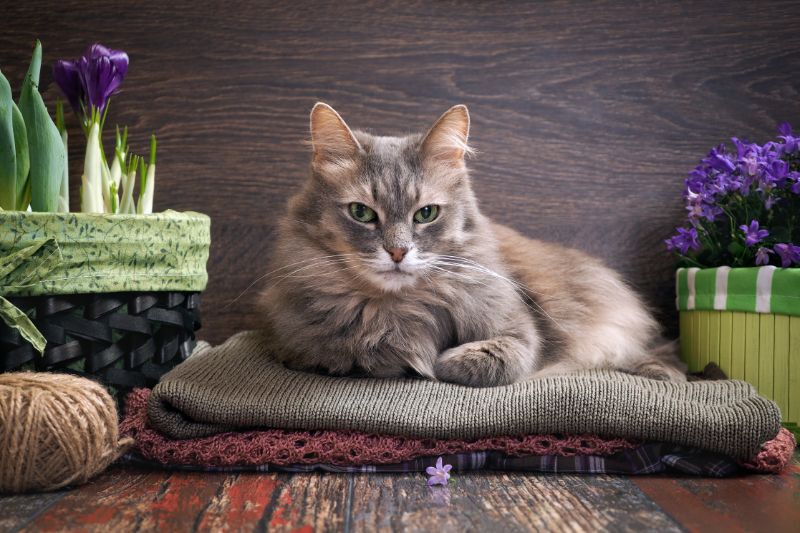Filtering Out the Key Points in Feline Chronic Kidney Disease

At The Whole Pet Vet Hospital & Wellness Center, we love cats. These extraordinary creatures amaze us day in and out with their beauty, resilience, and resolve. Each of us has our weaknesses, though, and for many cats their weak spot seems to be their renal system.
Feline chronic kidney disease (CKD) is a commonly diagnosed problem in our purring patients. In fact it is the most common condition diagnosed in our cat population over 10 years of age, making it very important for our pet parents to understand and acknowledge.
Understanding CKD
When we describe feline chronic kidney disease, we are describing an ongoing loss of kidney function over time. The kidneys are a key part of the renal system. This body system is responsible for filtering impurities and toxins from the blood, excreting them into urine, which is then transferred to and voided from the urinary bladder.
The kidneys also have several other vital functions. They regulate hydration status, electrolyte balance, maintain appropriate blood pressure, and even stimulate red blood cell production.
Cats who are suffering from CKD may hide their symptoms in the beginning. However, as the disease process progresses, pet owners may notice:
- Increased thirst
- Increased urination
- Weight loss
- Decreased appetite
- Dull or unkempt haircoat
- Bad breath
- Lethargy
- Vomiting
- Pale gums
Some cats may also develop high blood pressure, which can lead to other symptoms including blindness.
It is important to note that many problems and diseases can have similar symptoms. Please let us know if your pet is exhibiting any of these so that we can make an appropriate diagnosis and begin treating right away.
Pinpointing the Problem
In an ideal world, we would diagnose feline chronic kidney disease long before any symptoms were apparent. This is where proactive pet wellness care plays a big role. When we are examining your cat frequently and performing screening tests like blood and urine analysis, we are more likely to catch things like CKD early. This gives us the best odds of successfully managing it.
Even if your cat has become symptomatic, it is not too late. When we suspect a patient may be suffering from CKD, blood and urine testing can confirm this. Other testing such as blood pressure monitoring may also be advisable.
If the problem has come on suddenly, we may wish to rule out other causes of more acute kidney disease such as infection, toxin exposure, or urinary obstruction.
Managing Feline Chronic Kidney Disease
Unfortunately, there is not a cure for feline chronic kidney disease. However, there are many things that we can do to help keep the kidneys functioning well while managing the symptoms and improving your cat’s quality of life.
If your cat has been diagnosed in the midst of a uremic crisis (an episode where the kidneys are damaged enough to cause serious illness), several days of intravenous fluid therapy may be necessary to rehydrate and flush the toxins from the bloodstream.
Maintaining good hydration is key to managing the CKD patient. Pet owners can participate by:
- Providing several sources of fresh, clean water
- Considering a running water source or fountain for your cat
- Feeding canned foods which contain a lot of moisture
- Being sure that your cat’s drinking does not decrease during stressful times such as new people in the home, construction, moving, boarding, etc.
- Administering subcutaneous fluid therapy if directed by your veterinarian
Diet is also key for cats with CKD. Feeding a diet restricted in phosphorus and sodium with moderate levels of protein, while remaining high in water soluble vitamins and fiber, can increase the quality and quantity of life in cats with kidney disease. We are happy to help make dietary recommendations for your pet.
Routine visits to monitor weight, blood pressure, red blood cell counts and electrolyte levels are also key. Additional therapies may be recommended depending on your cat’s disease progression. Adjunctive care such as acupuncture, nutritional supplements and herbal therapies may be beneficial for some patients as well.
Many cats respond very well to management of feline chronic kidney disease, particularly if diagnosed early. That is what makes it so important for cat owners to understand this condition. Your vigilance in preventative care and recognizing when your cat needs help is key in the success of our efforts. Your cat is counting on you.
